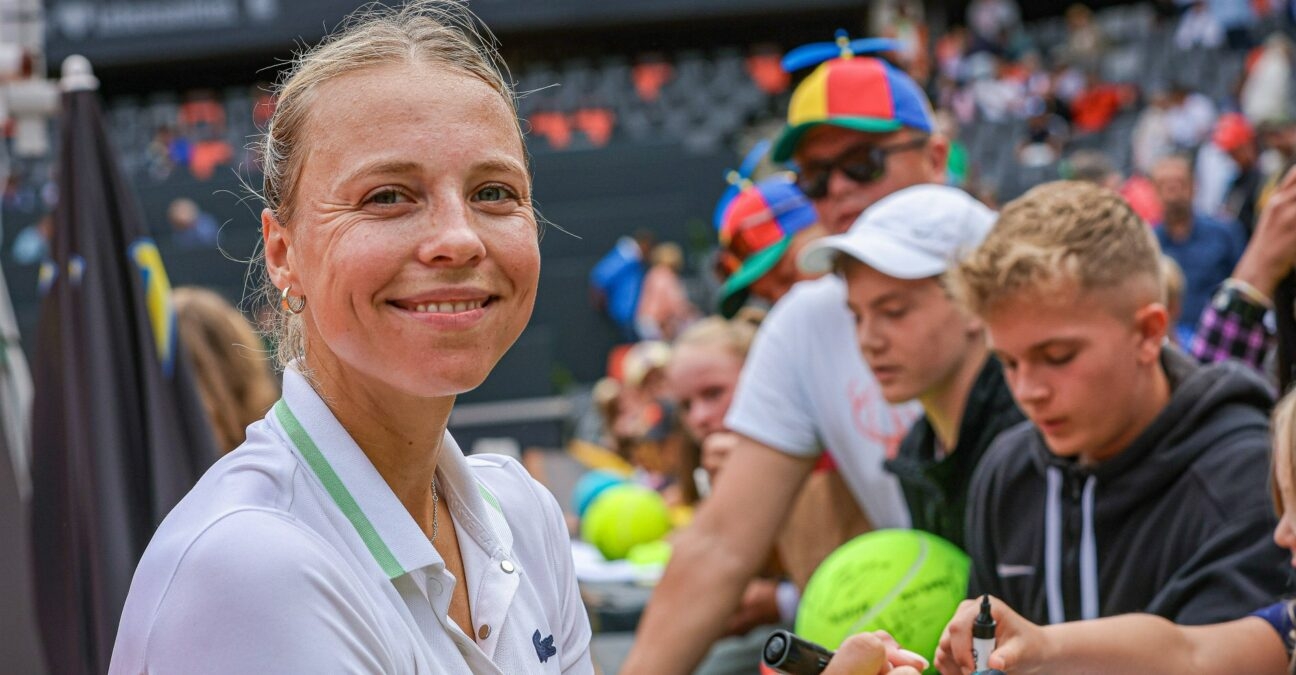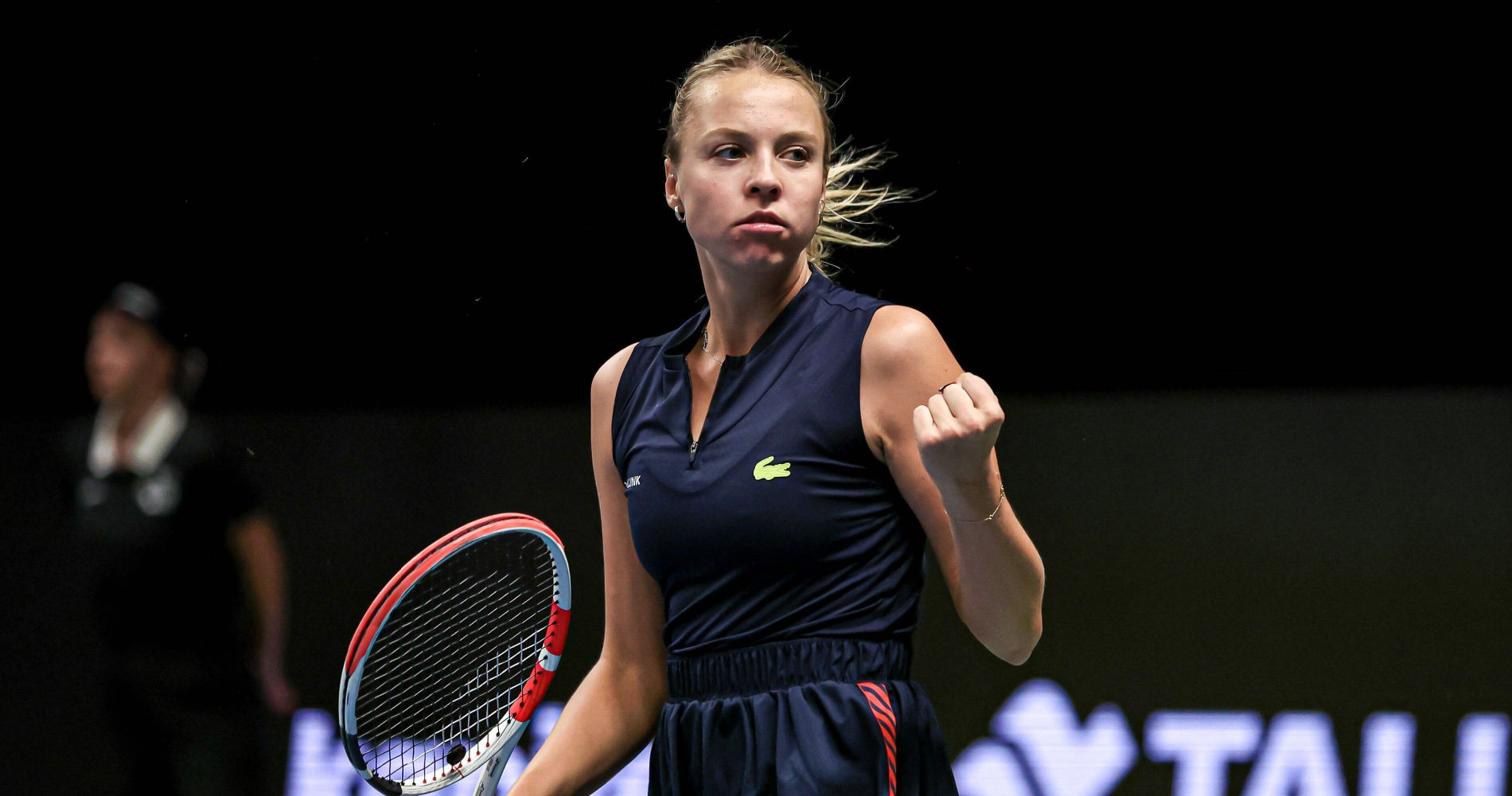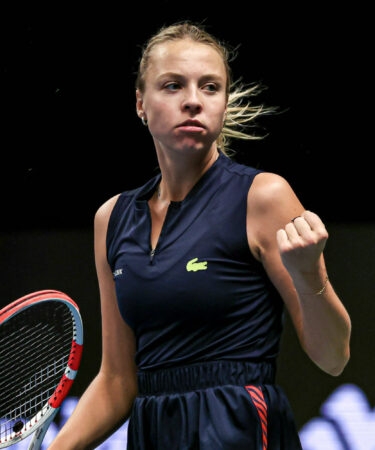Exclusive interview: Anett Kontaveit discusses her decision to retire: “I’m surprised how difficult it has been”
In an exclusive interview at Wimbledon, the Estonian explains how she has accepted the fact that she has to retire, says she’s proud of her career and discusses her plans for the future
 Kontaveit, Hambourg 2022 – © Imago / panoramic
Kontaveit, Hambourg 2022 – © Imago / panoramic
For most people, when Wimbledon ends, another opportunity will offer itself, another tournament in another city a chance to earn ranking points and money.
For Anett Kontaveit, this is it.
At the tender age of 27, the Estonian is bowing out of professional tennis. Not because she wants to but because she has to. A lumbar disc degeneration means she has pain in her back every time she plays and quite simply, she is unable to train at a level which would enable her to continue to perform professionally.
At Wimbledon on Wednesday, she prolonged her career by at least another day with a first-round win over Lucrezia Stefanini and on Thursday she plays Marie Bouzkova in round two, hoping to push her retirement back a day or two more.
“It’s been a rollercoaster”
Just two years after she ended the year ranked No 2, coming to terms with her decision has been hard for Kontaveit. Her press conference was packed and she’s being followed by Netflix cameras for her last days on tour. As one of the most popular players, the attention is well deserved, but as she explained in an interview in one of the small interview rooms here at Wimbledon, it has been far from easy.
“I always thought when the day came that I’d be fine,” she said. “But then actually it’s been pretty difficult. I’m surprised how difficult it’s been. Especially announcing (the retirement) and everything, it was very stressful and I was getting very negative. It’s been hard. It’s been kind of like a rollercoaster, I think.”
In some ways, retiring because of injury might seem easier than simply walking away from the game. Roger Federer talks about accepting he will not play again because his knee is not up to it. Kontaveit took pain killers before her first-round match but as anyone who has played in pain knows, it’s miserable.
“I think ending my career would be difficult anyway, because that’s what I’ve done my whole life and it’s something I care about so much and that I’ve put all my attention to for the last I don’t know how many years,” she said. “I mean, it is coming sooner than I thought it would. It’s been a difficult decision to make, but one I’ve had to make. I think once I decide something, I’m pretty firm on it. And there’s also life after tennis of course. So I am trying to not get too stuck on all the sad and negative things about it.”
Proud of her consistency, peaking in 2021

Always a good junior, Kontaveit reached just one Grand Slam quarter-final, at the Australian Open in 2020, but made the last 16 at the US Open twice. On the WTA Tour, though, she was much more successful. She won six titles in all, the first in ‘s-Hertogensbosch in 2017, and was ranked inside the top 30 from 2018 to the start of 2023.
Her finest moments came in 2021, when she won four tournaments, reached a peak ranking of No 2, qualified for the WTA Finals and then reached the final itself. She added a sixth title in St Petersburg the following year and ended 2022 still inside the top 20.
“I think I’m very proud of consistently staying in the top 20, 30 and then of course, having this one huge year where I achieved a lot of my goals that I had for my career,” she said. “I think just producing this constant level of good tennis.”
What next? A return to tennis as a psychologist?
The transition to life after sport is not an easy one. Many players in all sports have struggled to adjust. Her friends on Tour, including Ons Jabeur and Daria Kasatkina, think she’ll be fine and Kontaveit already has plans to carry on studying psychology.
“It’s something I’m going to get to a little bit later,” she said. “That’s kind of the plan right now. But we’ll see what happens because (it will take) so many years for me to finish school.
“I think it would be good to sort of take advantage of the fact that I have so much experience in the sport and psychology is something that’s been fascinating to me. I’ve worked with different sports psychologists at home and I do think that having this experience is a big bonus.”
Don’t expect a comeback
Of course, as Kontaveit rests her body, she will feel less pain, hopefully none, and there may come a time when she might feel like she could play again. Might she consider a comeback?
“Well, it is something that is not going to heal,” she said. “So I don’t see it getting so much better. But for sure, if I don’t put so much pressure on it with running and playing and moving so much, it’s going to probably feel a little bit better.
“But I think once I would start doing that, it, it just getting worse. So I don’t see that I could, you know, play professional tennis and not feel any pain at all.”




